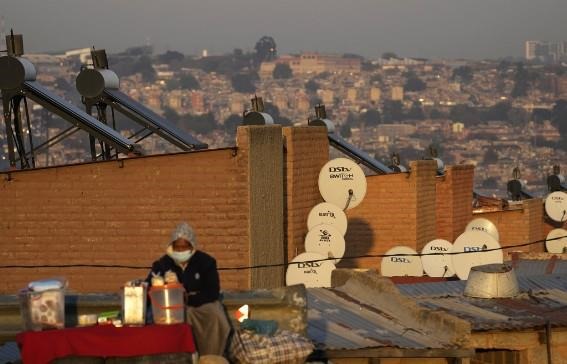
A woman selling fat cakes sits in front of low-cost housing in the Alexandra township of Johannesburg in August. Experts say domestic-friendly climate investments in the U.S. might have unexpected side effects on nations that are less wealthy. Themba Hadebe/AP
President Joe Biden and other U.S. officials think they finally have a winning climate message to share with the world — even if not everyone agrees.
After years of false starts and disappointments, Biden and congressional Democrats this summer passed into law a sprawling $370 billion package of investments and tax credits that promises to transform the U.S. economy and give the United States a plausible way to meet its 2030 climate pledges.
“People see what the United States is doing, and it has spurred other countries on,” U.S. climate envoy John Kerry said.
But while delegates gathering in Egypt for this year’s global climate talks say they’re glad the U.S. finally has a climate law in hand, the Democrats’ law has sparked significant controversy with even its closest allies.
The measure has attracted widespread criticism from U.S. trading partners, in large part because the Inflation Reduction Act is saturated with provisions that seek to encourage U.S. production of electric vehicles and green energy. Those incentives have angered both rich and poor countries and opened the door to trade disputes.
“It’s an amount of state aid to American businesses that is probably not really in line with the general trade agreements that we have,” said Sébastien Treyer, executive director of the Institute for Sustainable Development and International Relations, a think tank.
Click here to see more...